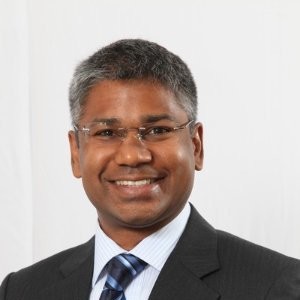Seed Capital
1Mby1M Virtual Accelerator Investor Forum: With Steve Beck of Serra Ventures (Part 4)
Sramana Mitra: How did that happen? How did they find you? How did you find them?
Steve Beck: I built a company with some guys called C2B Technologies. We sold it to a company called Inktomi in 1999. We had a great exit. We started a little venture firm. One of the companies we began to help was called BioSpace. There was a lady there that we really liked. >>>
1Mby1M Virtual Accelerator Investor Forum: With Suresh Shanmugham of Saama Capital (Part 2)
Sramana Mitra: I understand that in 2007, it was betting on Vijay as the entrepreneur. How long did you stay in that company? Did you seek an exit somewhere along the way? What has been your evolution with that company?
Suresh Shanmugham: We have exited a good portion of our position. The company split into three different pieces. We had ownership in all three pieces as a result. What we did was, we sold off the piece that contained the payments business. We maintained ownership in one of the other entities, which is Paytm Mall. We remain invested although we’ve monetized a substantial portion of our investment.
Sramana Mitra: Aside from Paytm, what other companies have you invested in? Please focus the >>>
1Mby1M Virtual Accelerator Investor Forum: With Steve Beck of Serra Ventures (Part 3)
Sramana Mitra: What do you need in terms of metrics? Let’s talk about B2B SaaS. Are you looking for a million dollar ARR? Are you looking for paying customers but not yet velocity? What is the comfort zone?
Steve Beck: We hear these types of things all the time. What we’re looking for are some of the obvious things. One is a big total addressable market that’s waiting for disruption. We’re looking for an executive team and a founding group that we really believe in. We know that many of the companies that we invest in are going to end up doing something a little different than what their initial thesis is. >>>
1Mby1M Virtual Accelerator Investor Forum: With Suresh Shanmugham of Saama Capital (Part 1)

Responding to a popular request, we are now sharing transcripts of our investor podcast interviews in this new series. The following interview with Suresh Shanmugham was recorded in May 2018.
Suresh Shanmugham, Managing Partner at Saama Capital, talks about the Indian venture capital eco-system, trends, exits, and his firm’s investment strategy.
Sramana Mitra: What we’re going to do is get to know you and help our entrepreneurs, in particular, get to know how you think about investments. Tell us about your fund. Tell us about what your investment focus is. >>>
1Mby1M Virtual Accelerator Investor Forum: With Steve Beck of Serra Ventures (Part 2)
Sramana Mitra: That’s very good to hear that kind of alternative investment thesis because with 700 plus micro-VCs in the industry, there is no way we’re going to get 2,500 unicorns. Unicorns are supposed to be rare, so it’s mathematically impossible to have that many. I hear from too many investors that they’re all chasing unicorns. I’m actually thrilled to hear the investment thesis that you just laid out. Let’s double-click down on that a bit. Is that mainly a B2B thesis?
Steve Beck: We’re an opportunistic firm. We have a fairly broad thesis which is a little bit unusual. I would say about 70% of our fund is information tech broadly. Within information tech, we do B2B SaaS. I know a lot of people feel that’s played out but we don’t >>>
1Mby1M Virtual Accelerator Investor Forum: With Vivek Ladsariya of SineWave Ventures (Part 5)
Sramana Mitra: Two of my favorite unicorn companies are Veeva and Fortinet. These are multi-billion dollar market cap companies. Veeva, in its entire history, raised $7 million in capital of which $4 million was not necessary. They just had so much revenue and momentum. It was basically a company built with revenues and traction. Fortinet was an incredibly capital-efficient company that scaled tremendously. Today, it’s over $1.5 billion in revenue with a tremendous market cap.
Vivek Ladsariya: I agree. I’ll add Salesforce to that list as well. It’s not as capital-efficient as Veeva may be, but they didn’t raise the kind of money a standard unicorn might have. >>>
1Mby1M Virtual Accelerator Investor Forum: With Steve Beck of Serra Ventures (Part 1)

Responding to a popular request, we are now sharing transcripts of our investor podcast interviews in this new series. The following interview with Steve Beck was recorded in May 2018.
Steve Beck, Managing Partner at Serra Ventures, discusses his firm’s non-Unicorn investment thesis. Refreshing to hear.
Sramana Mitra: Let us introduce you to the audience. Tell us about the fund. How big is it? What kind of investments do you like to make? What is the focus? >>>
1Mby1M Virtual Accelerator Investor Forum: With Vivek Ladsariya of SineWave Ventures (Part 4)
Sramana Mitra: Can you talk to me a bit about how you view TAM? I’ll give you the context of where I’m coming from in asking this question. We are in April 2018. Lots of stuff have already been built. Nowadays, there aren’t as many wide-open opportunities out there to build these billion-dollar TAM businesses.
Some people only want to invest in $10 billion plus opportunities which are fewer and farther between. I actually see that there are many, many niche opportunities out there. Some of these businesses need to be built for small amounts of capital whether it’s the $200 million TAM opportunities or $600 million TAM opportunities. >>>
